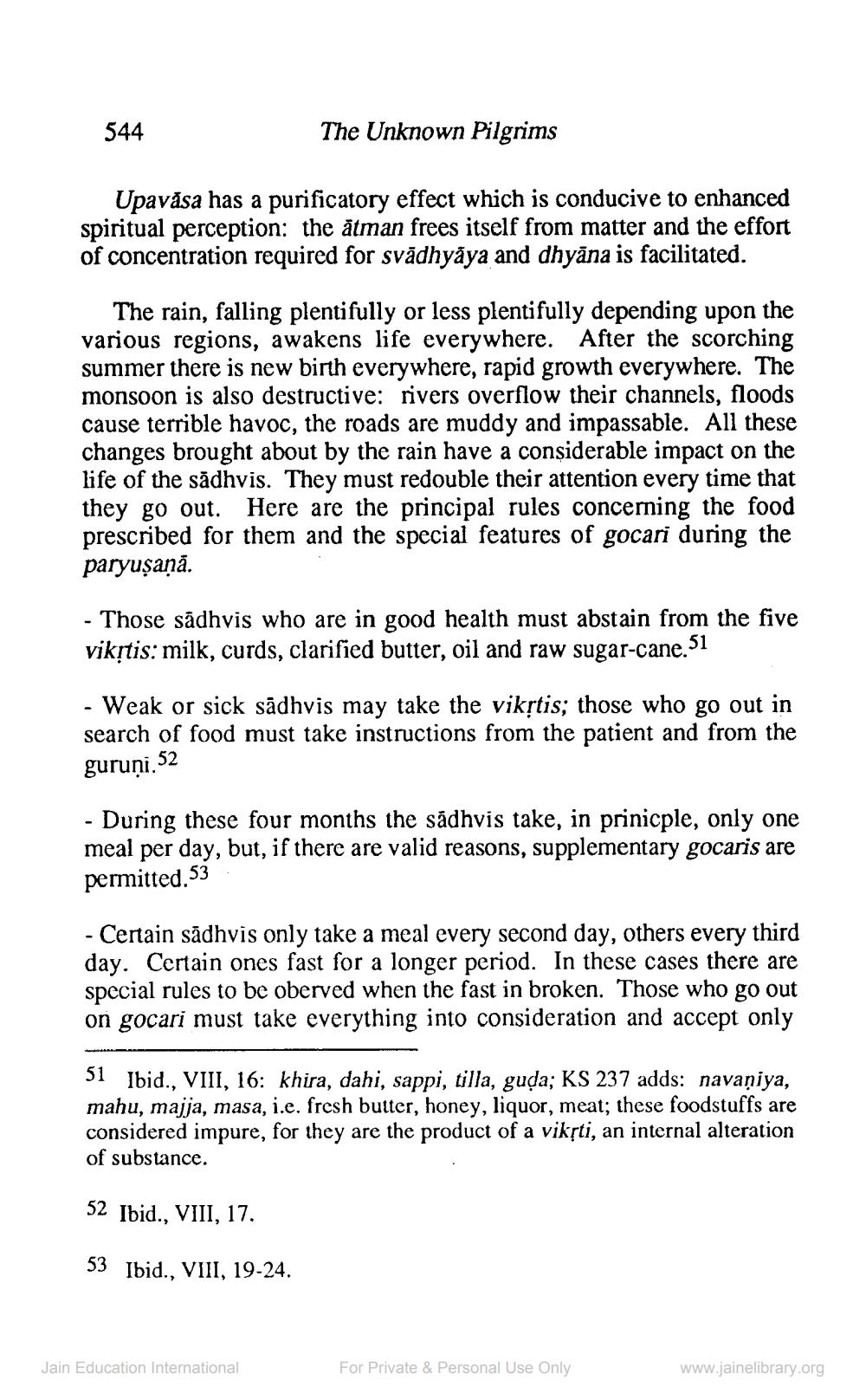________________
544
The Unknown Pilgrims
Upavāsa has a purificatory effect which is conducive to enhanced spiritual perception: the ātman frees itself from matter and the effort of concentration required for svādhyāya and dhyāna is facilitated.
The rain, falling plentifully or less plentifully depending upon the various regions, awakens life everywhere. After the scorching summer there is new birth everywhere, rapid growth everywhere. The monsoon is also destructive: rivers overflow their channels, floods cause terrible havoc, the roads are muddy and impassable. All these changes brought about by the rain have a considerable impact on the life of the sādhvis. They must redouble their attention every time that they go out. Here are the principal rules concerning the food prescribed for them and the special features of gocari during the paryusaņā.
- Those sãdhvis who are in good health must abstain from the five vikstis: milk, curds, clarified butter, oil and raw sugar-cane.51
- Weak or sick sādhvis may take the vikstis; those who go out in search of food must take instructions from the patient and from the
guruņi.52
- During these four months the sădhvis take, in prinicple, only one meal per day, but, if there are valid reasons, supplementary gocaris are permitted.53
- Certain sādhvis only take a meal every second day, others every third day. Certain ones fast for a longer period. In these cases there are special rules to be oberved when the fast in broken. Those who go out on gocari must take everything into consideration and accept only
51 Ibid., VIII, 16: khira, dahi, sappi, tilla, guda; KS 237 adds: navaniya, mahu, majja, masa, i.e. fresh butter, honey, liquor, meat; these foodstuffs are considered impure, for they are the product of a viksti, an internal alteration of substance.
52 Ibid., VIII, 17.
53 Ibid., VIII, 19-24.
Jain Education International
For Private & Personal Use Only
www.jainelibrary.org




